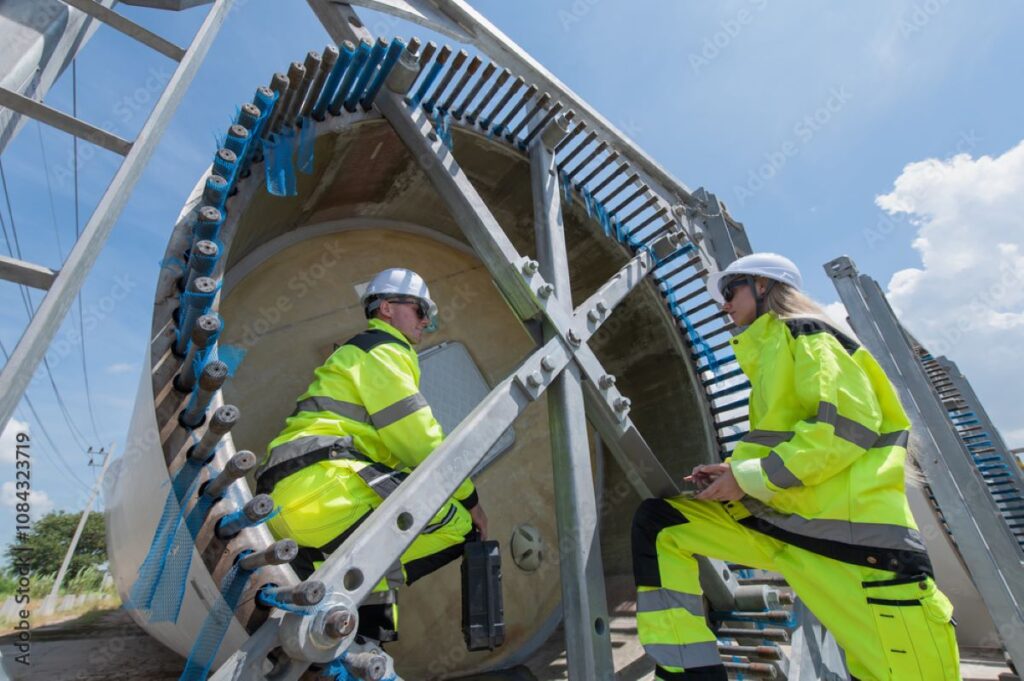In the ever-evolving world of construction, the role of a construction surveyor is both pivotal and indispensable. These professionals provide the foundational data and insights necessary for successful site planning, ensuring that projects are executed with precision and efficiency. Their expertise not only helps in avoiding costly errors but also in optimising the use of resources, thereby contributing significantly to the overall success of construction projects.
The Role of Construction Surveyors in Site Planning
Understanding the Terrain
Construction surveyors are tasked with the crucial responsibility of understanding and interpreting the terrain of a construction site. This involves conducting detailed surveys to gather data about the topography, soil composition, and existing structures. By doing so, they provide essential information that influences the design and layout of the project. Accurate terrain analysis helps in identifying potential challenges such as uneven ground, water drainage issues, or unstable soil, which could affect the construction process.
Moreover, surveyors utilise advanced tools and technologies such as GPS and laser scanning to create precise maps and models of the site. These technological advancements enable them to offer a comprehensive view of the site, which is indispensable for architects and engineers during the planning phase. Without such detailed insights, projects risk encountering unforeseen obstacles that could lead to delays and increased costs.
Ensuring Compliance with Regulations
Another critical aspect of a construction surveyor’s role is ensuring that all site planning adheres to local and national regulations. Construction projects must comply with a myriad of zoning laws, building codes, and environmental regulations. Surveyors are well-versed in these legal requirements and play a key role in ensuring that the site planning process aligns with them. This not only helps in avoiding legal complications but also ensures the safety and sustainability of the construction project.
Surveyors work closely with regulatory bodies to obtain necessary permits and approvals, facilitating a smooth progression of the project from planning to execution. Their expertise in navigating the complex regulatory landscape is invaluable, as non-compliance can result in significant fines, project delays, or even the halting of construction activities.
Optimising Resource Allocation
Effective resource allocation is a cornerstone of successful construction site planning. Construction surveyors contribute to this by providing accurate data that informs the allocation of materials, labour, and equipment. By understanding the specific needs and challenges of a site, surveyors help project managers make informed decisions about where and how to deploy resources most effectively.
This optimisation not only reduces waste but also enhances the efficiency of the construction process. For instance, precise measurements and site assessments can prevent over-ordering of materials or the unnecessary deployment of machinery, both of which can inflate project costs. Surveyors’ insights into the site conditions also aid in scheduling tasks in a manner that minimises downtime and maximises productivity.
Technological Advancements in Surveying
Embracing Modern Tools
The field of construction surveying has seen significant technological advancements in recent years. Modern tools such as drones, 3D laser scanning, and Geographic Information Systems (GIS) have revolutionised the way surveyors gather and analyse data. These technologies allow for more accurate and efficient surveys, reducing the time and effort required to obtain critical site information.
Drones, for example, can quickly capture aerial images and data of large sites, providing a comprehensive overview that would be time-consuming and challenging to achieve through traditional methods. Similarly, 3D laser scanning offers high-precision measurements, enabling surveyors to create detailed digital models of the site. These models are invaluable for visualising the project and identifying potential issues before construction begins.
Data Integration and Analysis
With the advent of sophisticated software, construction surveyors can now integrate and analyse data more effectively than ever before. These tools allow for the seamless combination of various data sets, such as topographical maps, soil analysis, and environmental impact assessments, providing a holistic view of the site. This integrated approach enables surveyors to offer more comprehensive insights and recommendations, enhancing the accuracy and reliability of site planning.
Furthermore, advanced data analysis techniques, such as predictive modelling and simulation, allow surveyors to anticipate potential challenges and devise strategies to mitigate them. This proactive approach not only improves the efficiency of the construction process but also minimises risks and uncertainties, ensuring that projects are completed on time and within budget.

The Impact of Accurate Site Planning on Project Success
Minimising Risks and Uncertainties
Accurate site planning is essential for minimising risks and uncertainties in construction projects. By providing detailed and reliable data, construction surveyors help project managers identify potential issues early in the planning phase. This foresight allows for the development of contingency plans and risk mitigation strategies, reducing the likelihood of costly delays and disruptions during construction.
Additionally, accurate site planning ensures that all aspects of the project are aligned with the initial design and objectives. This alignment is crucial for maintaining the quality and integrity of the construction, as deviations from the plan can lead to structural weaknesses or safety hazards. Surveyors’ expertise in ensuring precision and accuracy is therefore indispensable for achieving successful project outcomes.
Enhancing Collaboration and Communication
Effective collaboration and communication are vital for the success of any construction project. Construction surveyors play a key role in facilitating this by providing clear and accurate data that serves as a common reference point for all stakeholders. This shared understanding helps to align the efforts of architects, engineers, contractors, and project managers, ensuring that everyone is working towards the same goals.
Moreover, surveyors’ insights and recommendations can help to resolve conflicts and discrepancies that may arise during the planning and execution phases. By providing objective and reliable data, they enable stakeholders to make informed decisions and reach consensus more easily, fostering a collaborative and productive working environment.
Improving Cost Efficiency
Cost efficiency is a critical consideration in construction projects, and accurate site planning plays a significant role in achieving it. By providing precise data and insights, construction surveyors help to optimise resource allocation and minimise waste, reducing overall project costs. Their expertise in identifying potential issues and challenges also helps to prevent costly delays and rework, further enhancing cost efficiency.
In addition, accurate site planning enables project managers to develop realistic budgets and timelines, ensuring that projects are completed on time and within budget. This not only enhances the financial viability of the project but also strengthens the reputation and credibility of the construction company, paving the way for future opportunities and success.
The Future of Construction Surveying
Emerging Trends and Innovations
The future of construction surveying is set to be shaped by a range of emerging trends and innovations. As technology continues to advance, surveyors will have access to even more sophisticated tools and techniques, enabling them to gather and analyse data with greater accuracy and efficiency. For example, the use of artificial intelligence and machine learning in surveying is expected to revolutionise the way data is processed and interpreted, offering new insights and possibilities for site planning. Click here to get more about the the benefits of construction survey services for developers.
Furthermore, the increasing focus on sustainability and environmental responsibility in construction is likely to influence the role of surveyors. As projects strive to minimise their environmental impact, surveyors will play a key role in assessing and mitigating potential environmental risks, ensuring that site planning aligns with sustainability goals and regulations.
The Evolving Role of Surveyors
As the construction industry continues to evolve, the role of surveyors is also expected to change. In addition to their traditional responsibilities, surveyors may take on more strategic and advisory roles, providing insights and recommendations that influence the overall direction and success of projects. This shift will require surveyors to develop new skills and expertise, as well as to adapt to changing industry demands and expectations.
Moreover, the increasing complexity of construction projects will necessitate greater collaboration and communication between surveyors and other stakeholders. As such, surveyors will need to develop strong interpersonal and communication skills, enabling them to work effectively with diverse teams and contribute to the successful delivery of projects.

Conclusion
Construction surveyors are indispensable for accurate site planning, providing the essential data and insights needed to ensure the success of construction projects. Their expertise in understanding the terrain, ensuring compliance with regulations, and optimising resource allocation is invaluable for minimising risks, enhancing collaboration, and improving cost efficiency. As the construction industry continues to evolve, the role of surveyors will become even more critical, driven by technological advancements and emerging trends. By embracing these changes and adapting to new challenges, surveyors will continue to play a vital role in shaping the future of construction.

